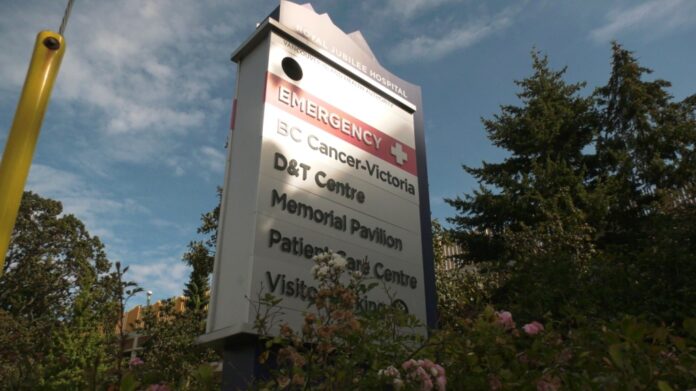A group of physicians are setting up unofficial overdose prevention sites outside two Vancouver Island hospitals Monday, aiming to help people struggling with addiction – while also sending a message to the government.
“Lately, there’s been a lot of controversy and politicization around the work that I do, and meanwhile, people are dying,” said Dr. Jess Wilder, a Nanaimo-based addictions and family medicine physician.
“We want to bring the narrative back to the fact that saving lives is not controversial.”
She told CTV News the group will operate at Nanaimo Regional General Hospital and Royal Jubilee Hospital in Victoria. The setup includes two tents, one for drug use and another where doctors will be on standby in case of an emergency. They plan to have the overdose prevention sites open this week between 10 a.m. and 6 p.m., Monday to Friday.
The OPS have not been approved by the Vancouver Island Health Authority, and Wilder acknowledges that the volunteers could be asked to leave.
However, the outcome she hopes for is that officials will see that operating such sites at hospitals is possible.
“A small group of people with money out of their own pockets were able to make this happen in just a couple short weeks,” Wilder told CTV News. “And so I would hope that this can demonstrate a free proof of concept to our health authority and to our government of how we can bring these services to all of our hospitals.”
The health authority funds eight OPS on Vancouver Island, none of which are inside hospitals. When the toxic drug crisis was declared a public health emergency in 2016, a ministerial order was put in place saying that OPS must open “in any place there is a need for these services.”
And Wilder says they are desperately needed in every hospital. She described patients having overdoses on hospital grounds, in bathrooms and patient rooms on a weekly basis. She says health-care workers have few options to support patients who use substances after possession of small amounts of hard drugs was largely re-criminalized, including in hospital settings.
“Obviously a patient can’t use in their room, they can’t use within the hospital building, and we are left with no safe space to ask them to go to, which means that we are literally left asking them to leave hospital grounds to go and use their substances when they are medically sick and at an increased risk of lethal overdose, and we’re asking them to go into the shadows and be somewhere where nobody can see them, where nobody can respond if they were to die,” she said.
The issue of drug use in hospitals created a political firestorm earlier this year, when then-opposition B.C. United surfaced a memo out of a Quesnel hospital suggesting nurses couldn’t confiscate drugs and patients could use in their rooms—which officials later said was poorly worded.
A Richmond city council proposal to explore the possibility of a supervised consumption site at the local hospital sparked large protests, even though health officials had already shot down the idea.
The BC Nurses’ Union previously told CTV News that Vancouver Island hospital staff were being exposed to illicit drugs at work, and it would like the province to look at dedicated safe consumption sites in hospitals.
“I recognize that there have been unintended exposures of illicit substances to health-care workers, and that is absolutely not OK,” Wilder said. “I think that this overdose prevention site is part of that solution. We know that when patients have a safe space to use, they are less likely to try to use in their rooms or to use in a bathroom or to use somewhere where health-care provider may be exposed to it.”
In April, Health Minister Adrian Dix said a task force would be created to standardize rules around drug use in hospitals.
Wilder says that since then, “it has been absolute radio silence” from the province, while about six British Columbians continue to die every day from toxic drug overdoses.
“As a doctor, I’m providing evidence-based medicine to save the lives of my patients,” she said. “So I would be really disappointed if there were any negative consequences to this project or to my own career as a result of taking this on.”

